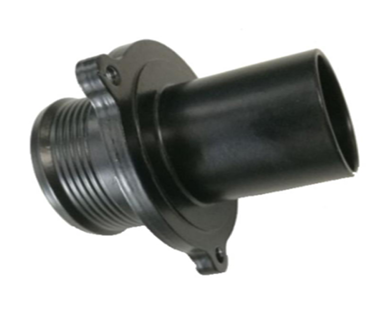The turbo muffler is an integral component in the turbocharged engine’s intake system for vehicles based on the VW/Audi MQB platform and MK7 models. It is located on the turbocharger’s compressor outlet side and plays a crucial role in reducing intake noise, managing pressure fluctuations, and optimizing airflow characteristics.
**Materials and Construction:**
Turbo mufflers for these vehicles are typically constructed from durable materials such as aluminum alloy or stainless steel. These materials are chosen for their ability to withstand high temperatures and pressures, ensuring longevity and reliability under various driving conditions.
**Design and Features:**
1. **Noise Reduction:** The primary function of the turbo muffler is to reduce intake noise generated by the turbocharger. It achieves this by incorporating internal baffles or chambers that disrupt and absorb sound waves, resulting in a quieter engine intake sound compared to a straight-through design.
2. **Pressure Regulation:** Turbo mufflers also help regulate pressure fluctuations within the intake system. They can stabilize airflow and minimize turbulence, which contributes to smoother engine operation and improved throttle response.
3. **Smooth Internal Surface:** Many turbo mufflers feature a smooth internal surface finish. This helps maintain optimal airflow characteristics, reducing turbulence and pressure drop across the muffler.
4. **Compatibility with OEM Components:** Aftermarket turbo mufflers are designed as direct replacements for OEM units, utilizing factory mounting points and connections. This ensures compatibility with existing intake and cooling systems, facilitating straightforward installation.
**Compatible Year Models:**
– **VW/Audi MQB Platform:** Compatible with various VW and Audi models built on the MQB platform, including:
– Audi A3/S3 (2013 onwards)
– Audi TT (2014 onwards)
– VW Golf MK7 (2013 onwards)
– VW GTI MK7 (2013 onwards)
– VW Golf R MK7 (2013 onwards)
– VW Passat B8 (2015 onwards)
– and other models utilizing the MQB architecture.
**Performance Benefits:**
While the primary function of a turbo muffler is noise reduction, it indirectly contributes to performance by:
– **Improved Driving Comfort:** Reducing intake noise enhances driving comfort, especially during daily commuting or long-distance travel.
– **Consistent Engine Operation:** By stabilizing pressure and airflow, turbo mufflers can help maintain consistent engine performance, contributing to smoother acceleration and throttle response.
– **Enhanced Durability:** Upgrading to a high-quality turbo muffler ensures durability and reliability, even under demanding driving conditions or when the vehicle is tuned for increased power output.
**Installation and Compatibility:**
Installing an aftermarket turbo muffler for VW/Audi MQB and MK7 models is typically straightforward. Basic hand tools are required, and installation procedures follow manufacturer instructions. Most aftermarket mufflers are designed for direct fitment, ensuring seamless integration with OEM components and systems.
**Conclusion:**
The turbo muffler upgrade for VW/Audi MQB and MK7 models provides a balance between noise reduction and optimizing airflow characteristics. With its durable construction, compatibility across a range of model years, and ability to enhance driving comfort, it represents a practical enhancement for enthusiasts looking to refine their vehicle’s intake system.
Only logged in customers who have purchased this product may leave a review.












Reviews
There are no reviews yet.